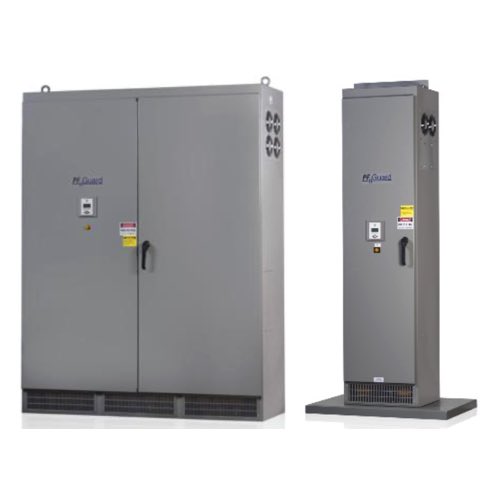TCI Capacitors

TCI capacitors are designed to improve power quality and energy efficiency in industrial and commercial electrical systems. By optimizing power factor and reducing harmonic distortion, these capacitors help stabilize voltage levels and support reliable system operation. They are commonly used in applications where poor power quality can lead to equipment malfunction, inefficiency, or premature component failure.
Manufactured with high-quality materials, TCI capacitors are built to minimize energy losses and support long-term performance. Their rugged construction makes them well suited for demanding environments where electrical loads are high or fluctuate frequently. Proper thermal management is an integral part of their design, helping reduce the risk of overheating and extending service life under continuous operation.
TCI offers capacitors in a variety of configurations to meet different voltage, current, and application requirements. These solutions support consistent power management in systems such as motor drives, power distribution networks, and industrial automation equipment. By improving overall system efficiency and reliability, TCI capacitors help reduce operational strain on electrical infrastructure.
FAQs
Q: What are TCI capacitors used for?
TCI capacitors are used to improve power factor, reduce harmonic distortion, and enhance overall power quality in industrial and commercial electrical systems.
Q: How do capacitors improve power quality?
Capacitors help correct reactive power imbalance, stabilize voltage levels, and reduce electrical losses, which improves system efficiency and performance.
Q: Are TCI capacitors suitable for harsh industrial environments?
Yes, TCI capacitors are designed with durable materials and thermal management features that support reliable operation in demanding industrial conditions.
Q: What applications commonly use TCI capacitors?
Common applications include motor control systems, variable frequency drives, power distribution equipment, and industrial automation systems.
Q: How does thermal management affect capacitor performance?
Effective thermal management helps prevent overheating, reduces the risk of thermal runaway, and extends the operational life of the capacitor in high-load applications.
Why Buy TCI Capacitors from RSP Supply
RSP Supply offers a selection of TCI capacitors designed to support reliable power quality and energy efficiency across a wide range of applications. Our products meet the needs of industrial and commercial systems requiring consistent electrical performance. Customers rely on RSP Supply for dependable components, technical expertise, and solutions that support efficient and stable power management.

